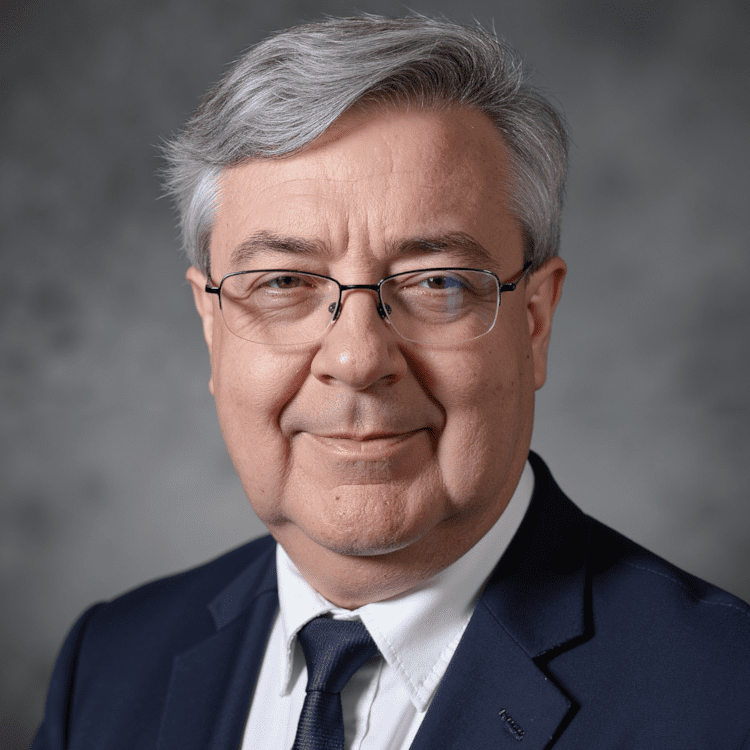Relating the Mission of God to Evaluation, Adaptation, and Sustainability Planning
Introduction
Sustainable impact is a core principle for missional leaders who seek to bring about long-term transformation within communities. It requires more than short-term interventions; it involves creating strategies that not only address immediate needs but also ensure the continuity and effectiveness of services over time. Across five distinct missional careers—Pastoral Care & Chaplaincy, Community Development, Behavioral Health & Rehabilitation, Community Health & Promotion, and Social Work & Faith Community Services—the theme of sustainable impact manifests in unique yet interconnected ways. Each missional career contributes to the broader goal of creating environments where individuals and communities can thrive in the long run.
In Pastoral Care & Chaplaincy, sustainable impact means providing ongoing spiritual and emotional support through adaptable care strategies that meet changing needs. In Community Development, it involves continuously assessing and responding to the needs of the community, ensuring that initiatives are aligned with long-term goals. Behavioral Health & Rehabilitation seeks enduring change through therapeutic interventions that evolve in response to client feedback, while Community Health & Promotion emphasizes the importance of long-term health improvements, driven by constant evaluation and resource sustainability. Lastly, Social Work & Faith Community Services focuses on leveraging faith-based social initiatives that can endure, adapting to shifting societal needs while fostering lasting social change.
Together, these missional careers highlight a commitment to ensuring that the impact of missional leadership reaches beyond transient outcomes, establishing the foundation for transformative, sustainable growth and development in individuals and communities alike as their gospel-centered witness participates in the mission of God.
1. Spiritual Resilience through Suffering
Spiritual resilience through suffering is a foundational approach in pastoral care and chaplaincy, especially when faced with prolonged hardship. As individuals and communities experience suffering, the missional leader integrates biblical teachings that emphasize endurance and hope. By fostering continuous feedback and adapting care strategies, pastoral care leaders and chaplains can meet individuals where they are, offering tailored support that aligns with their spiritual needs. The adaptability of care methods and sustainability of pastoral resources ensure that, even in times of crisis, the community remains grounded in faith, hope, and mutual support. Pastoral care, when grounded in the mission of God, does not simply offer temporary comfort but fosters long-term spiritual endurance that can adapt to the seasons of life, integrating feedback from the community and ensuring ongoing support.
Biblical Illustration
In 1 Peter 3:8-22, Peter calls believers to endure suffering for righteousness, highlighting Christ’s own suffering as a model. In the Roman Empire, Christians were often persecuted for their faith, facing both social exclusion and physical harm. The cultural context of Roman persecution makes the call to continue loving, enduring, and living in a manner worthy of the Gospel even more poignant. Peter’s letter was written to encourage these early Christians, reminding them that their suffering was not in vain but part of God’s redemptive work. For the missional leader in pastoral care, this passage teaches the importance of supporting individuals during hardship, helping them find resilience in Christ and urging them to continue living righteously despite opposition. This approach highlights the power of faith to transform suffering into a pathway to spiritual growth, ensuring that individuals are not just supported in the moment but are empowered to thrive in the long term. This approach underscores the necessity of ongoing spiritual care to help individuals navigate suffering while maintaining hope and faith in God’s ultimate deliverance. This passage reflects the mission of God to empower individuals and communities for long-term spiritual growth through suffering, as believers are called to not only endure hardship but also to transform through it. The apostle emphasizes living righteously, responding to evil with good, and maintaining a clear conscience, as a way to exhibit Christ-like resilience.
Applications for Missional Careers in Pastoral Care and Chaplaincy
- Counseling and Chaplaincy
In a pastoral care setting, counselors can adapt their methods to better support individuals facing prolonged difficulties, ensuring that their spiritual resilience is nurtured. By continually assessing and refining counseling strategies, they can create lasting positive changes in the emotional and spiritual lives of those they serve, fostering ongoing well-being. - Ministry in Crisis
Chaplains in hospitals or military settings can provide ongoing spiritual support through continuous feedback, adjusting their care strategies to meet the evolving emotional and spiritual needs of those they serve. Their commitment to long-term engagement ensures that individuals are not only supported in immediate crises but are also equipped with lasting resilience to navigate future challenges.
2. Building a Living Community
The missional leader, by continuously evaluating the community’s needs and adapting strategies to meet them, ensures that the growth is holistic—spiritual, relational, and material. This approach calls for missional leaders to engage with feedback from the community, revise initiatives, and ensure resources are allocated in a way that promotes long-term transformation. Over time, this kind of development ensures that communities are not just surviving, but thriving and growing in ways that are sustainable and inclusive. Thus missional leaders in community development evaluate the unique contributions of each individual and adapt strategies to integrate all members into the growth process.
Biblical Illustration
In 1 Peter 2:1-10, Peter describes the church as living stones, being built into a spiritual house. This metaphor underscores the importance of community development in the missional framework of God, where individuals are not only empowered to grow in their faith but also called to contribute to the communal transformation. Building a living community is about more than just physical infrastructure; it’s about creating a network of relationships that empower each individual to grow and contribute to the whole. Peter’s idea of a spiritual house where each believer is a living stone is mirrored in community development, where each member is seen as integral to the transformation of the whole community. The metaphor of the royal priesthood further emphasizes that each believer has a part to play in the development and sustainability of the broader community. Through ongoing evaluation and adaptation, the missional leader ensures that resources are effectively distributed to foster a thriving community where all members contribute to its long-term transformation. Like a building made of living stones, community development requires careful planning, regular feedback, and sustained efforts to ensure that every individual plays a role in the continued flourishing of the body of believers.
Applications for Missional Careers in Community Development
- Community Leadership
Leaders in churches or faith-based organizations can apply this by consistently assessing the spiritual and physical needs of their communities and adapting programs that support long-term growth. Their ability to plan with sustainability in mind ensures that initiatives will endure and evolve with the needs of the community, creating lasting transformation. - International Development
Global missional efforts can be focused on building sustainable, self-sufficient local ministries that continue long after initial outreach, using feedback from local communities to adapt and ensure continued impact. These initiatives can empower local leaders to maintain momentum, ensuring that the community continues to grow and thrive independently.
3. Restoration through Resilience
Transformative healing through suffering highlights the powerful intersection of faith and therapy. In the process of behavioral health and rehabilitation, suffering often plays a pivotal role in both individual transformation and long-term healing. In therapeutic settings, suffering—whether physical, emotional, or spiritual—becomes an opportunity for recovery and transformation. The missional leader in behavioral health and rehabilitation creates a safe space for clients to process their suffering, while offering adaptive strategies that align with their personal healing journey. Through continuous feedback and evaluation, interventions are modified to ensure they remain effective, and resources are provided to support long-term recovery. This approach acknowledges that while suffering is painful, it can also be a catalyst for deep, lasting change when it is met with resilience and the right resources. In behavioral health and rehabilitation, the missional leader fosters long-term transformation by encouraging individuals to persevere through suffering, adapting their strategies for lasting healing.
The missional leader, by integrating feedback from individuals undergoing rehabilitation, ensures that therapeutic approaches are adaptive, offering both immediate relief and long-term healing. This aligns with the mission of God, where individuals are empowered not only to overcome their personal struggles but also to contribute to the well-being of the larger community. The missional leader’s ability to integrate adaptive, feedback-driven strategies ensures that rehabilitation is sustainable and transformative, offering lasting change to individuals and their broader communities.
Biblical Illustration
Peter’s words in 1 Peter 3:8-22 urge believers to respond to suffering with compassion and endurance, pointing to Christ as the ultimate example of redemptive suffering. In the early Roman world, Christians were often persecuted and marginalized, experiencing suffering both socially and physically. Peter calls them to be resilient, not in spite of suffering, but through it. His emphasis on suffering for righteousness calls believers to navigate hardship with grace. In this passage, Peter underscores that suffering is not the end of the story but part of the process of becoming more like Christ. Peter urges the reader to understand that suffering for righteousness is part of God’s design for spiritual growth, not as an end but as a transformative process that leads to greater maturity.
This reflects the role of the missional leader in behavioral health and rehabilitation, who integrates therapeutic interventions with the understanding that pain and hardship can lead to spiritual and personal transformation. Drawing from the cultural context of Roman persecution, this passage challenges leaders to help those in rehabilitation view their suffering through a redemptive lens, fostering a mindset of recovery and renewal. Transformative healing, thus, becomes not just about alleviating pain but about helping individuals grow spiritually and emotionally through their struggles.
Applications for Missional Careers in Behavioral Health and Rehabilitation
- Therapeutic Counseling
Counselors can integrate the idea of suffering with purpose by helping clients process their pain, creating pathways for healing that adapt to their individual needs. By fostering a relationship of continuous feedback, therapists can build sustainable support structures that empower individuals to heal and thrive long-term. - Rehabilitation Programs
Rehabilitation programs can use adaptive approaches that empower individuals to grow through their struggles, ensuring that support systems are sustainable and responsive to feedback. The long-term success of these programs depends on their ability to evolve with the changing needs of individuals, ensuring lasting recovery and personal growth.
4. Love as a Foundation for Health
Effective health promotion integrates continuous love and care for the whole person, adapting strategies for sustainable outcomes. The missional leader’s role is to advocate for health improvements, ensuring that programs are continuously evaluated and adapted to meet the needs of the community. In health initiatives, the missional leader integrates love into the design of health programs, not just as an emotional or moral imperative but as a practical tool for long-term well-being. Love drives ongoing assessment of the community’s health needs, adapts health initiatives, and ensures sustainability. It empowers communities to actively participate in their own health promotion, reinforcing that health is not just about treating illness but about fostering wholeness and relational well-being. Through continuous evaluation and adaptation, health programs are fine-tuned to meet the evolving needs of the community, ensuring that health resources remain accessible and effective for the long term.
Biblical Illustration:
In 1 John 3:11-18, John urges believers to love one another sacrificially, drawing from the ultimate example of Christ’s love. The early church was a diverse group of believers from different social, cultural, and economic backgrounds, facing external pressures from the Roman state and internal divisions. The emphasis on love in this passage was not just a moral imperative but a radical call to build unity amidst diversity. In a world where social status often dictated relationships, this command to love one another equally was revolutionary. For missional leaders in community health and promotion, this passage underscores the importance of cultivating a community where love and mutual care are central to promoting well-being. It teaches that true health—spiritual, emotional, and physical—emerges when individuals genuinely care for each other, modeling the sacrificial love of Christ. In the context of community health and promotion, this love is not just emotional but practical, encompassing actions that ensure the well-being of others. The mission of God to promote holistic well-being—spiritual, physical, and emotional—calls for a love that is sustained by ongoing effort. Through feedback mechanisms and sustainability planning, the missional leader ensures that health initiatives are not fleeting but are grounded in long-term care, empowering the community to thrive in all aspects of life.
Applications for Missional Careers in Community Health and Advocacy
- Public Health Initiatives
Leaders in community health can ensure their initiatives are based on love, continually adapting to the evolving needs of the community while fostering long-term well-being. This sustainable approach ensures that health interventions continue to meet the community’s needs, even as those needs change over time. - Faith-Based Health Services
Christian healthcare providers can integrate the sacrificial love of Christ into their practices, ensuring that their services meet both immediate and long-term needs. By focusing on sustainable care models, they can provide continuous support and healing, rooted in compassion and long-term commitment to the community’s health.
5. Community Building through Service
Community building through services focuses on fostering long-term social transformation through the continuous evaluation and adaptation of services to meet the evolving needs of the community. A missional leader in this context prioritizes an ongoing feedback loop, ensuring that programs remain responsive to the diverse challenges facing individuals and communities. This approach requires a keen awareness of the shifting dynamics within a community, be it in response to economic hardship, social justice issues, or personal crises, and the flexibility to adjust services accordingly. In addition to flexibility, the missional leader in faith-based social work emphasizes the importance of sustainability. Through this work, missional leaders serve as agents of transformation, advancing God’s justice and mercy within society.
Biblical Illustration
In 1 Peter 2:11-17, Peter exhorts believers to live as sojourners and exiles, urging them to abstain from sinful desires and to live honorably among non-believers. The cultural context of this passage reflects the early Christian experience under Roman rule, where they were often persecuted and marginalized, seen as outsiders because of their refusal to worship the Roman gods or engage in civic rituals. Peter encourages them to submit to governing authorities and live as model citizens, not out of fear, but to “silence the ignorance of foolish people” through good deeds. For missional leaders in social work and faith-based services, this passage emphasizes the role of the Christian community in promoting justice, care, and societal transformation. Just as early Christians were called to live lives that reflected God’s justice and mercy amidst their suffering, modern faith-based social work continues to uphold justice and compassion, offering a tangible witness of God’s love and care to vulnerable populations.
Applications for Missional Careers in Social Work and Faith Community Services
- Social Work Programs
Social workers can create adaptive care plans for individuals that involve them in service to their communities, promoting long-term transformation. By building strong, supportive networks that are responsive to changing needs, social work programs can ensure sustainable impact within both individual lives and the broader community. - Faith-Based Community Outreach
Faith-based services can involve community members in the design and execution of social initiatives, ensuring long-term sustainability through collective participation. By engaging the community in the process, these initiatives are more likely to endure and remain responsive to the evolving needs of those they serve.
Conclusion
Sustainable impact is not a passive process; it requires intentional, ongoing efforts that respond to the needs of individuals and communities while ensuring that resources and support systems remain effective and viable over time. The five missional careers—Pastoral Care & Chaplaincy, Community Development, Behavioral Health & Rehabilitation, Community Health & Promotion, and Social Work & Faith Community Services—demonstrate how missional leaders can create lasting change by adapting strategies, gathering continuous feedback, and securing resources that empower communities. By merging their faith, career and mission, missional leaders not only address immediate challenges but also build resilient systems capable of sustaining progress over the long term while joining God at work. This holistic approach to sustainable impact aligns with God’s mission to restore and transform lives, empowering individuals and communities to live out their fullest potential while fostering justice, healing, and well-being for generations to come. Through these efforts, missional leaders help ensure that the impact of their work extends beyond their tenure, creating an enduring legacy of positive transformation.

Dr. Curt Watke is a distinguished missiologist whose three-plus-decade-long career has significantly impacted Christian mission work in North America, particularly in under-reached and challenging regions. Holding a Ph.D. in Evangelism and Missions, Dr. Watke has focused on bridging cultural gaps and fostering sustainable Christian communities by developing innovative strategies that address contemporary challenges like globalization, urbanization, and religious pluralism. His emphasis on cultural sensitivity and contextualization in mission work is reflected in his collaborative writings, including notable works such as “Ministry Context Exploration: Understanding North American Cultures” and “Starting Reproducing Congregations.” Beyond his writing, Dr. Watke is a sought-after speaker and educator, lecturing at seminaries and conferences worldwide, and his teachings continue to inspire and equip new generations of missional leaders. His enduring legacy is marked by unwavering dedication to the mission of God and a profound influence on missional thought and practice. Dr. Watke serves as President and Professor of Evangelism & Missiology at Missional University.




